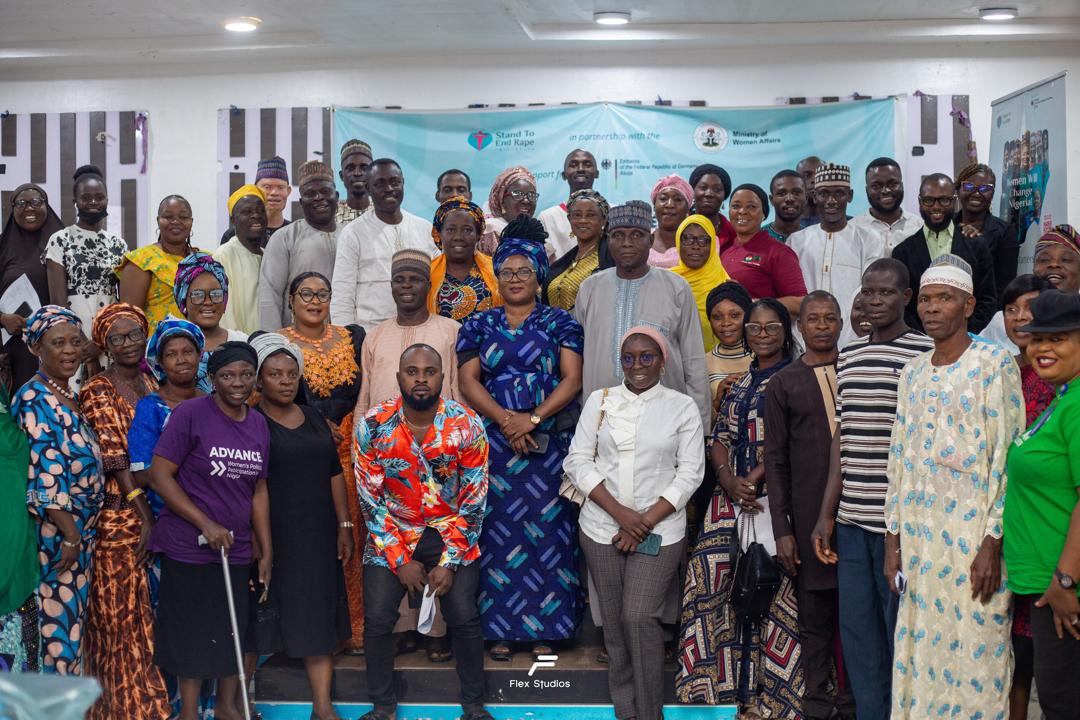By Kubrat Buhari
Nigeria remains one of the lowest-ranking countries in bridging gender equality gaps, particularly in terms of equal representation in the political space.
Despite women making up nearly half of the population, their participation in politics continues to lag significantly, which directly impacts the country’s democratic progress and overall development.
The Special Seats Bill in Nigeria was introduced by Hon. Nkeiruka Onyejeocha, the former Deputy Chief Whip of the House of Representatives, and co-sponsored by Femi Gbajabiamila, the former Speaker of the House, along with over 80 other members.
“The bill seeks to provide special seats for women in the national and state houses of assembly by amending sections 48, 49, and 91 of the 1999 Constitution, as well as sections 71, 77, and 117”.
The National Assembly had in 2022 rejected a proposed constitutional bill that aimed to create special seats for women in the federal legislature. Although, the bill later scaled second reading in the House of Representatives in July 2024.
Also, one of the conservation surrounding gender equality is the implementation of the National Gender Policy (2006) in Nigeria which provisions for 35 percent affirmative action in appointive positions with Kwara state majorly signed the policy.
To continue the 16 days of Activism for women, the Stand to End Rape (STER) Initiative, in partnership with the OA Foundation for Good Governance and National Development, organized a town hall meeting with the theme: Amplifying women’s representation in politics with a special Focus on the special seats Bill held at E phoenix hotel, GRA, Kwara state.
During the event, the Honourable commissioner of social Development in Kwara State, Mrs Abosede Buraimoh, said the special Seats Bill, a significant legislative proposal, aims to secure guaranteed positions for women in political offices, ensuring equitable representation across all levels of governance must be enforced.
In her address, she highlighted low participation of women in politics, adding that women made up almost half of the population as the gender is the second largest population after the youth population.
She also indicated that Nigeria should adopt the ways women representation like countries like Rwanda which is the first country in the world with a female majority in parliament.
She emphasized the need to create more awareness on participation and involvement of women in politics with sensitization and re- orientation from the grassroots.
Other countries with high percentage with women participation in politics are equally highlighted at the event, according to statistics made available as the next to Rwanda is Cuba (56 per cent), Nicaragua (54 per cent), Andorra (50 per cent), Mexico (50 per cent), New Zealand (50 per cent), and the United Arab Emirates (50 per cent).
Among the barriers to women’s political participation discussed at the event were socio-cultural issues, lack of support from women for other women, religious challenges, and insufficient grassroots sensitization.
Stakeholders at the event, which was attended by top government officials, religious leaders, technocrats, and media representatives, strongly recommended continuous grassroots engagement to raise awareness about the Special Seats Bill and the importance of gender parity in politics.
These stakeholders recommended the involvement of allies in the National Assembly to understand the need for the passage of special seat bill, continuous engagement in the grassroots and more grassroots re orientation.
Representative of the commissioner of women Affairs in Kwara, Alabi Idiat who was among the panelist also suggested giving enabling environment for women to thrive in politics.
She also emphasized the need for the active involvement of men in gender equality, encouraging them to adopt a HeForShe stance in supporting women’s political empowerment.
Chief Executive Officer at Global Hope for Women & Children Foundation, Christy Abayomi also contributed on sustaining the momentum beyond the bill, she encouraged sensitization on gender bias and vote of confident on women, media engagement, fight against violence, Harassment against women in the society citing the case of Natasha Akpoti, a politician that was harassed in 2019 and Salome Abuh, the Peoples Democratic Party’s (PDP) woman leader, who was burnt alive at Ochadamu, Kogi State.
The Special Seats Bill is a pivotal measure to ensure Nigerian women have a significant voice in shaping the decisions that affect their lives.
The National Assembly must act decisively to pass this bill, thereby guaranteeing women the representation they deserve and advancing Nigeria toward genuine gender equality in politics.
The collaboration of all stakeholders government, civil society, and the public is essential for the bill’s passage and implementation, fostering a future where gender parity in governance becomes the standard rather than the exception.
Buhari Kuburat writes from Ilorin. Contact her at kubbybuhari@gmail.com or call 07089137314

